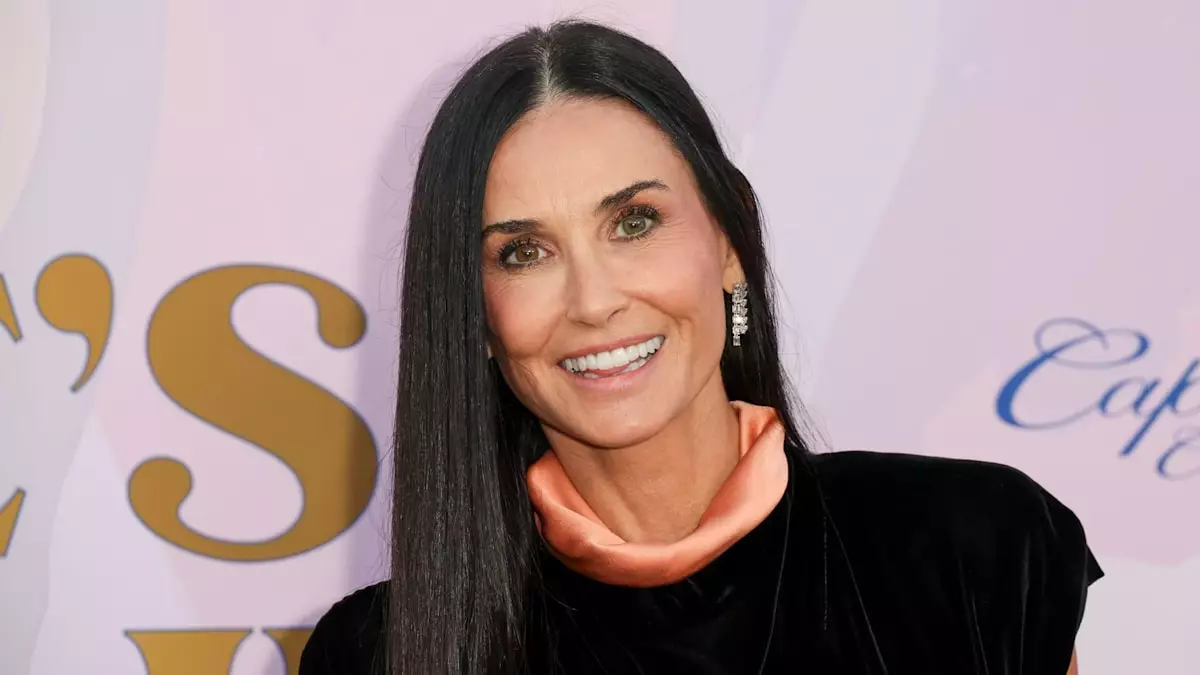Demi Moore, an iconic figure in Hollywood, has been open about her tumultuous journey through fame, particularly surrounding her struggles with body image and self-worth. In a recent interview with Elle magazine, the actress candidly reflected on a period in her life when the pressures to conform to industry standards led her to grapple with an eating disorder. This experience, as she described, was deeply painful and shaped her understanding of both her identity and her career.
The pressures placed on actresses often create an unattainable ideal of beauty that can have devastating consequences. Moore recounted a specific moment in her career when a producer strongly urged her to shed pounds for a role. This encounter was not merely a fleeting comment; it became a catalyst for a mental health crisis. “I internalized it,” she shared, revealing how such remarks spiraled her into a cycle of self-loathing and extreme behavioral responses. The actress did not just feel the weight of the expectation; she began to define her self-worth through the lens of her physical appearance, which ultimately led to profound internal turmoil.
Demi’s journey towards self-acceptance wasn’t instantaneous. In her 1997 epiphany, she realized that her value wasn’t contingent on being a specific size. This moment marked a significant turning point, yet Hollywood’s ageist tendencies continued to create barriers for her. As she matured, Demi confronted a new set of expectations—no longer youthful, yet not quite fitting into the mold of an older actress either. “I wasn’t 20 or 30, but I wasn’t what they imagined 40 or 50 was either,” she lamented.
The entertainment industry can be unforgiving, particularly towards women as they age. Demi’s narrative encapsulates the challenges many women face in an industry that zealously clings to youthfulness, often at the cost of a deeper understanding of age as a period of richness and experience. Despite feeling misplaced, Demi has managed to cultivate a sense of peace and gratitude for her career, demonstrating resilience against the industry’s unforgiving standards.
Today, as a 62-year-old actress, Demi Moore continues to confront societal pressures through her roles. Her latest project, “The Substance,” is ground zero for embracing the realities faced by older women in film. Despite initial discomfort regarding a full-frontal nude scene, Demi chose not to shy away from it. Instead of focusing on her insecurities, she recognized the importance of the scene in conveying the film’s message about societal expectations on women’s bodies. “It felt like any exposure of my insecurities would be worth it if I was part of bringing forward the conversation,” she stated, showcasing her commitment to authenticity.
This willingness to tackle uncomfortable topics pushes back against the status quo, challenging her peers and audiences to rethink perceptions of beauty and age. Moore’s fearlessness has often been an inspiration for her fans, as she continues to break down barriers and reframe narratives surrounding femininity.
Reflecting on her journey, Demi Moore illustrates a profound transformation from a place of pain to one of empowerment. In her candid conversations, she emphasizes her ongoing work on insecurities, revealing a commitment to personal growth that transcends her Hollywood persona. “I’m working on my insecurities,” she shared, highlighting the continuous nature of self-acceptance and healing.
Moore’s openness serves as a reminder that the struggles for self-worth and acceptance can be universal, transcending the limitations of fame and recognition. By sharing her story, she has not only illuminated her own journey but also provided a voice for others wrestling with similar issues. The evolution of Demi Moore encapsulates a narrative of resilience, authenticity, and, ultimately, a reclamation of self.

